Archive for the ‘John Bloomberg-Rissman’ Category
Entry 862 — What’s A Literary Critic?
Saturday, September 15th, 2012
There’s a discussion at leafepress.com the title of which is, “What is Literary Criticism? What is a Literary Critic?” It’s mainly between Conrad DiDiodato and John Bloomberg-Rissman, but Ed Baker takes a few potshots at the others, basically reiterating the standard belief of the romantic poet that criticism is irrelevant to poets.
The discussion annoyed me because it made no references to my criticism. Of course, I didn’t really expect it to, although Conrad knows a little of my work, but I have trouble listening to people taking tenth-rate critics seriously when my work is available. Yes, I am that arrogantly convinced of the value of my criticism. Not that I’m all that sure it’s any good, but that I am positive that it’s many orders of magnitude better than Derrida’s, say, or DeMan’s, or that moron Foucault, which these guys seem to admire (although they do seem to be familiar with a wide range of critics, some of whom I don’t take as tenth-rate, like Cleanth Brooks.
The discussion annoyed me more because, like so many such discussions, it starts nowhere, really, and splathers inconclusively severalwhere. Its central defect is absence of defined axiom-setting terms—due to the standard belief of its participants that “artworks . . . can NEVER be fully unpacked.” The truth is that any artwork can be unpacked sufficiently to satisfy any sane person. Just as the distance from my house to yours can be measured sufficiently to satisfy any sane person although it can never be measure perfectly.
This absence of defined terms allows them to say sometimes interesting things, and not worry about contradiction. And it satisfies the political need of the naïve to feel certain all beliefs are equally true/false, just as all persons are equally good/bad. The only problem with it is that it’s nonsense. This is a problem, because false beliefs are much more likely to lead to grief than true beliefs—as every knows intuitively but intellectuals keep out of their verbal awarenesses. For example, an intellectual won’t make a fifty-foot swan dive into a pool whose water he knows is frozen because his reptile brain will give him nausea at the thought of doing so. But the nausea will never work its way up into his verbal awareness and bother him with the possibility that a belief that a fifty-foot dive into a pool of solid ice is harmful is true whereas a belief that it is not harmful is false.
I know. Simplistic. But in the final analysis, true.
I began this expecting simply to answer the questions in the title of the leafepress.com discussion. No, not answer them, just scatter a few thoughts concerning them. I’ve elsewhere answered the questions pretty well, I believe, although I’m not sure when or where. Right now, however, I have one new thought (for me) about the subject: that there is an important difference between a literary critic and a literary appreciator. A literary critic tells you—make that, “tries to tell you”—everything important to know about a particular literary work based on its expressive elements alone. Which will include what is denoted, what connoted and what is explicitly alluded to. It will, I believe, also include what is implicitly alluded strongly enough for most knowledgeable engagents of the work under analysis to connect to. “Fourscore and ten years ago,” for instance, with “Lincoln’s “fourscore and ten years ago” being an explicit reference.
Hmm, I see that I’ve defined a literary critic, except that I left “literary work” undefined. So be it, for now, although it’s easy to define; it’d take too many words for me to bother doing that here (and I’ve done it elsewhere). Oh, one other minor omission: I didn’t say what it is important to know about a literary work. I’ve defined that, too. It wouldn’t take all that many words, but too many for me to bother with here.
Let me turn to what a literary appreciator is. I decided I needed the term because it seems to me my definition of the literary critic is almost identical to any new critic’s. But new critics opposed going beyond the artifact on the page or pages in analyzing it. I believe them correct to dos, but only strictly speaking. I want someone telling me about a poem, say, to tell me things about its maker, including things having little or nothing to do with the poem. Like, Wow, a guy like Ezra Pound could believe in a totally loony economics theory yet write “In a Station of the Metro!” A literary appreciator is a literary critic who also is willing to discuss all kinds of things about a poem beyond what it is as literature. He is not someone who slights literary analysis to do this. He must also avoid finding implicit allusions that aren’t there for any normal person and building wacky psychiatric interpretations out of them the way Freud did and has followers have. As basically all the French critics and their allies have in diverse ways.
Not that there isn’t a place for, say, someone who focuses on what forces in society may have influenced the final form of a poem. Such a person is neither a literary critic nor a literary appreciator; he is a sociological critic of literature.
Before I end I want to mention that I would divide literary critics into two kinds: the practical literary critic and the theoretical literary critic (unless I think of a better name). The first deals with works of literature, each mostly by itself, although he may (and usually should) connect a work to other works of its author, and to like works by others; the second does this also, but presents some kind of theory for the nature and value of a literary work—not just that rhyme is pleasurable, for instance, but why it is. Along the way he will provide a taxonomy of the kinds of literary works he deals with, and a continuing list of the techniques used in them with detailed descriptions of them, and why they are effective.
Above the two kinds of literary critics is the literary philosopher. Such a person is a serious seeker of significant final truths about literature. He will probably also be a philosopher of aesthetics, one seriously seeking significant final truths about all the arts, not just literature. My taxonomy continues upward, finally arriving at the neurophysiological theorist—who is one step below the Total Verospher, who seriously seeks significant final truths about everything!
Urp.
.



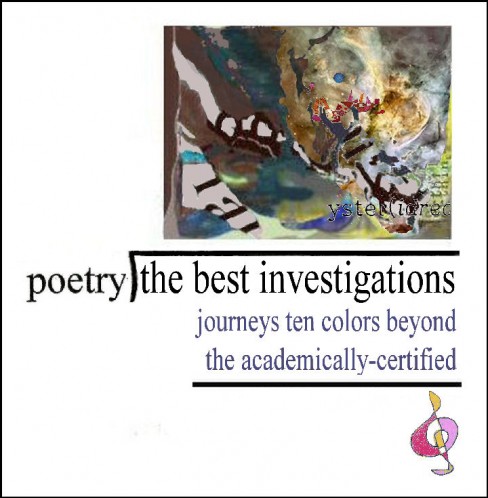



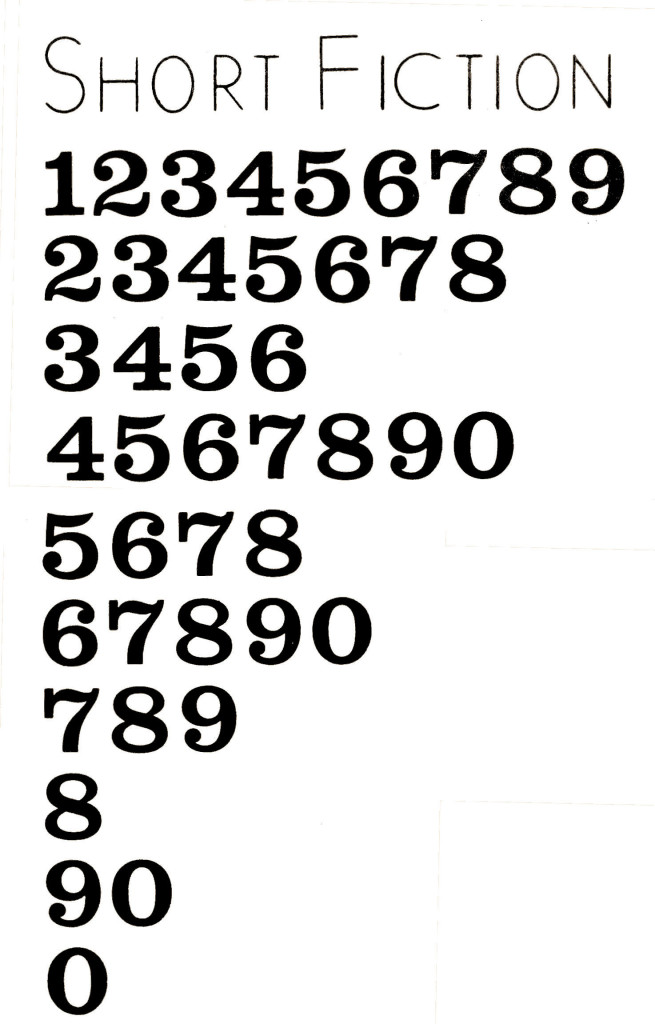
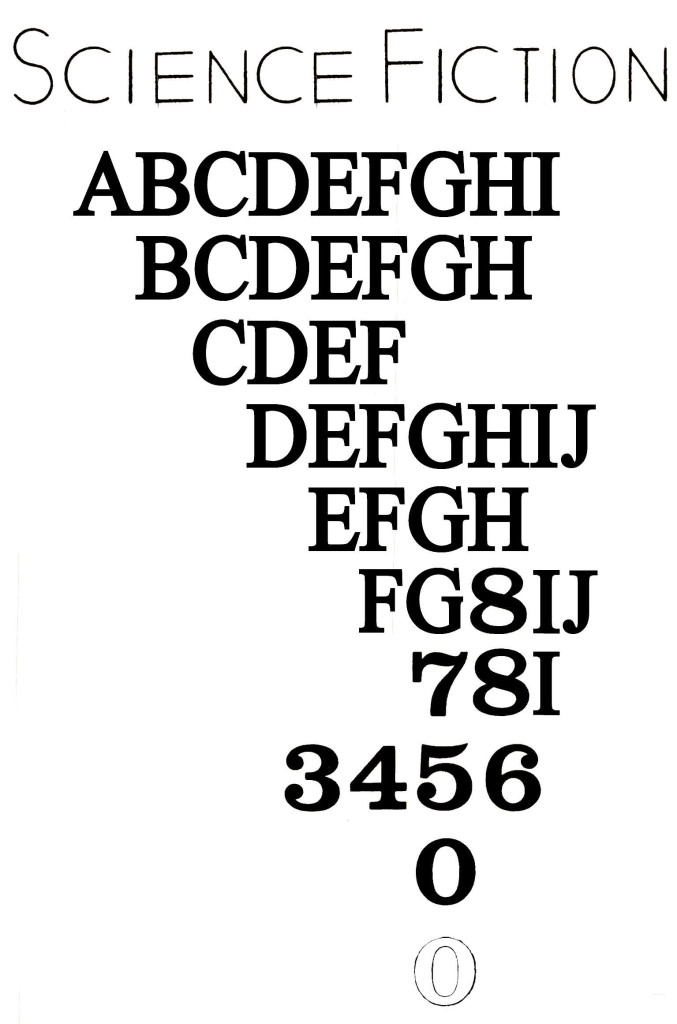
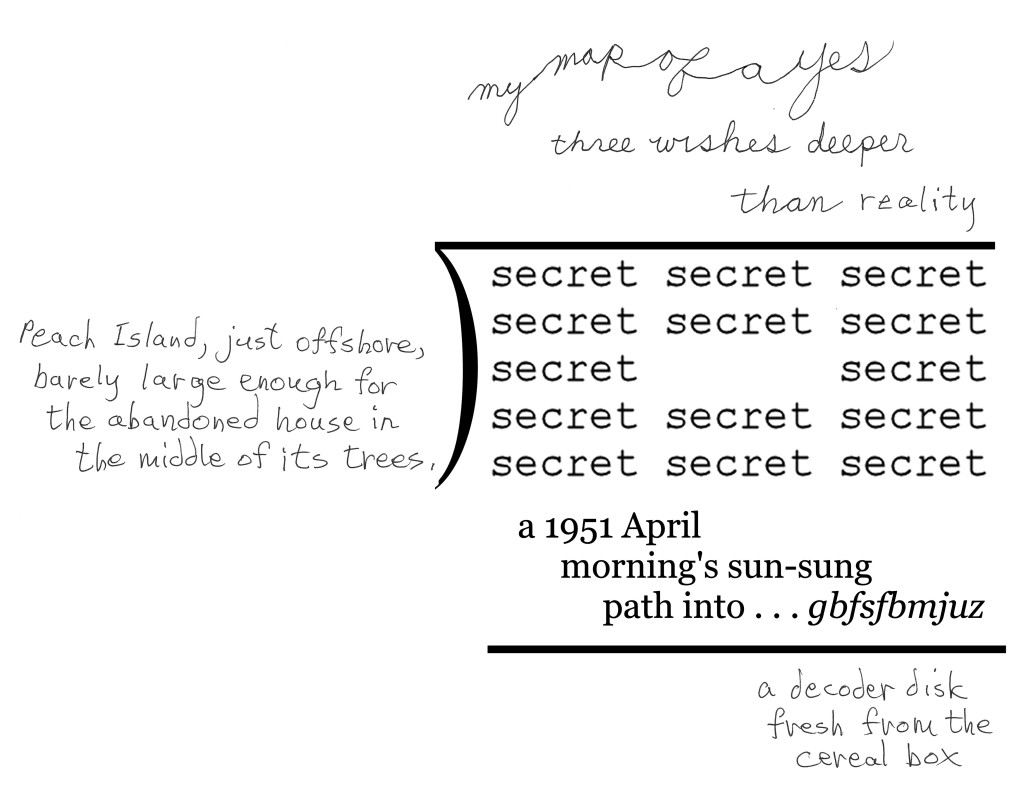
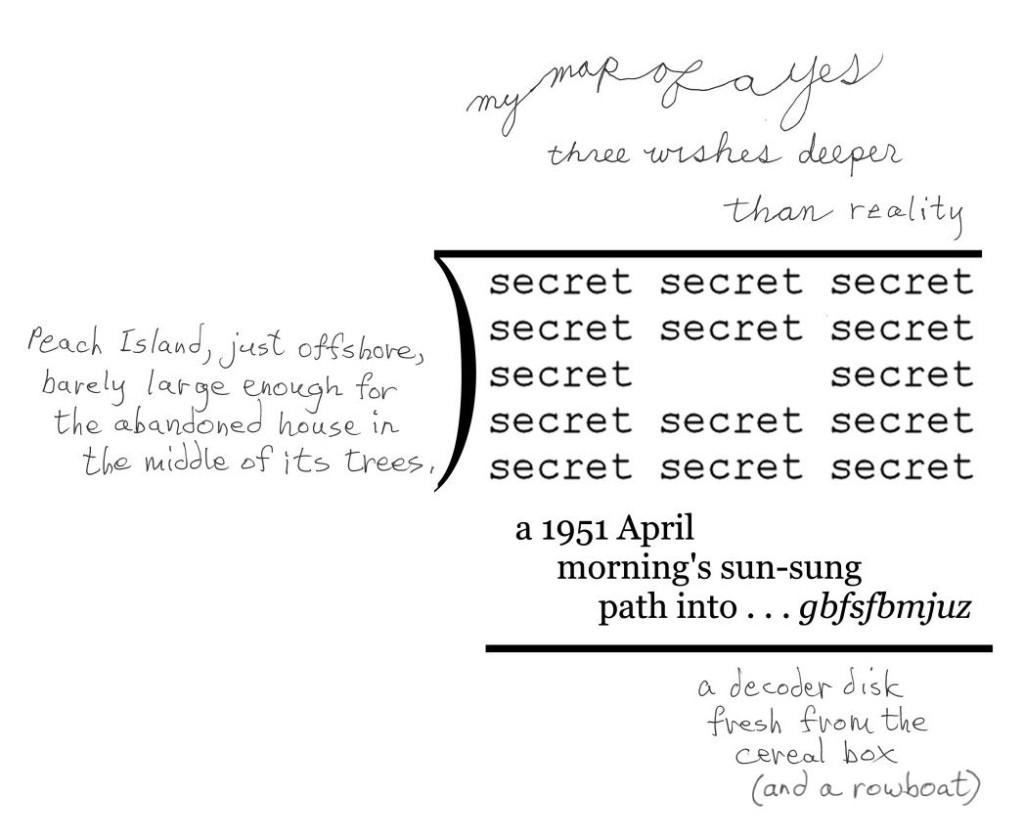
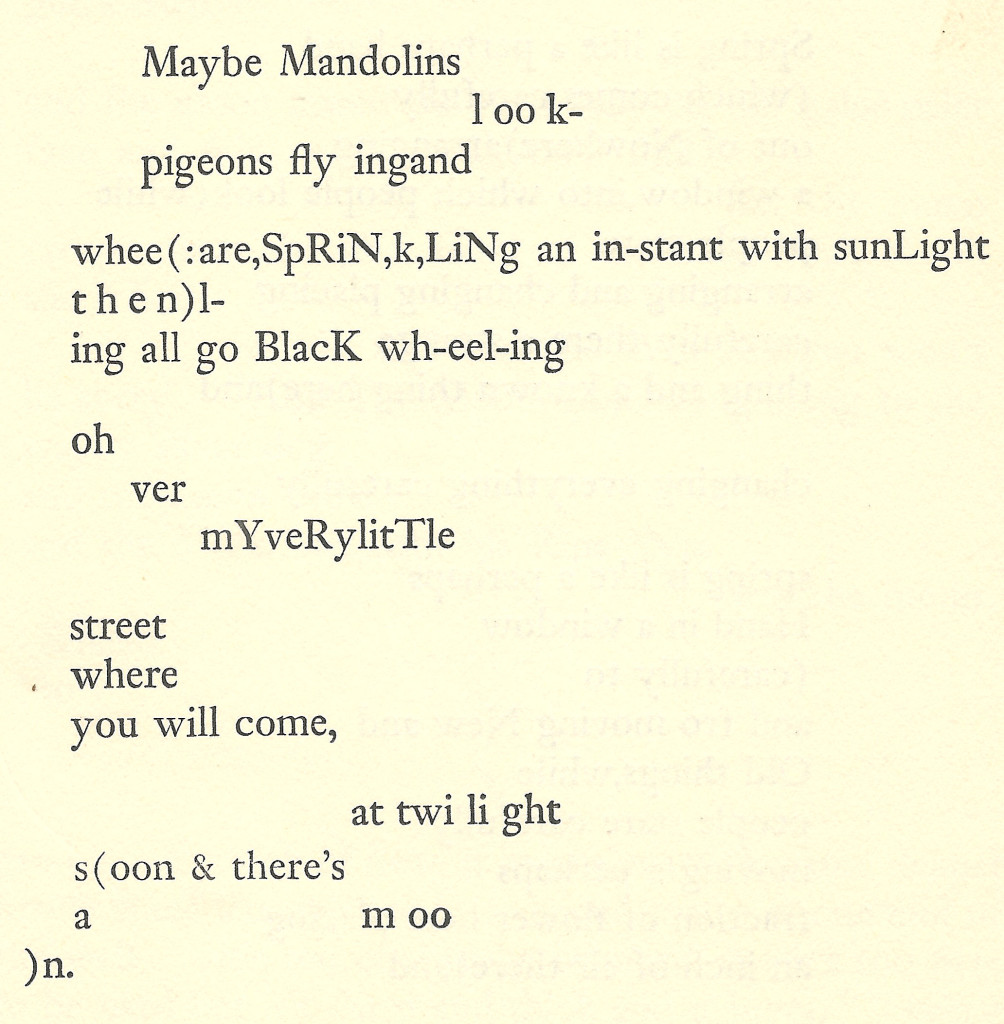
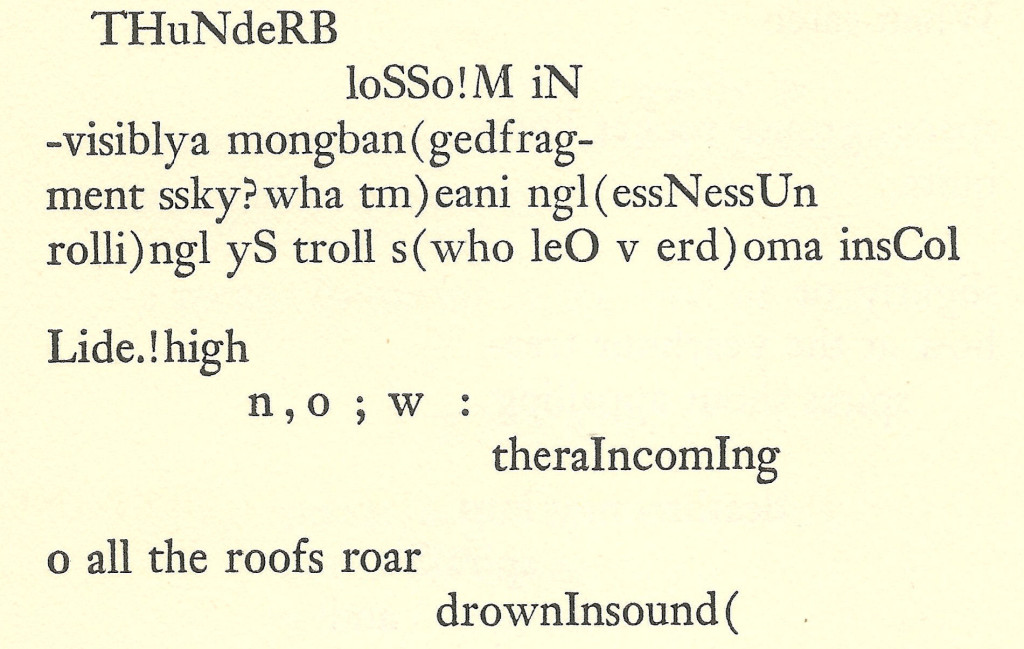
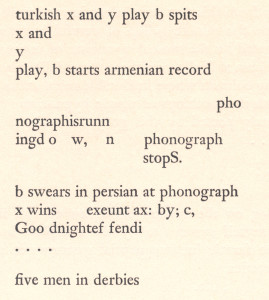
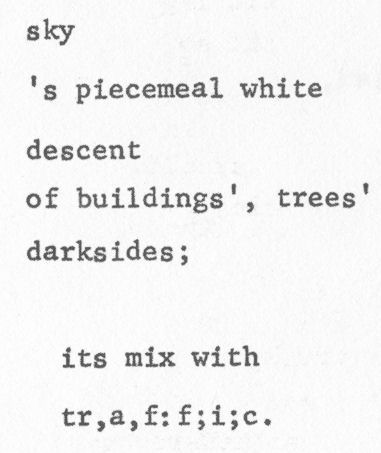

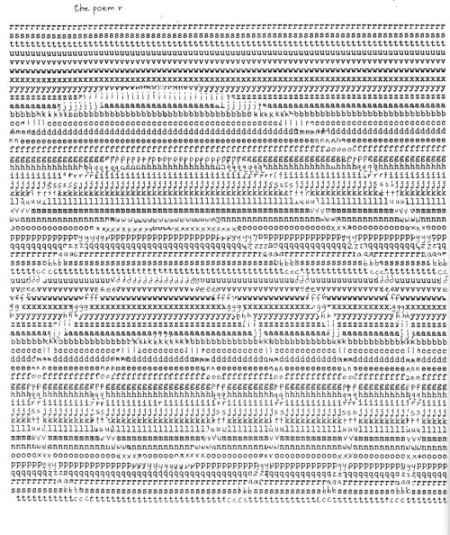


Whose sleep is the sky.
Aah, you minimalists!
But possibly yours is an equal but different version of the poem; I like Poem physically in his poems, though, and the emphasis on the time the question intrigues him. There’s even a juxtaphor (implicit metaphor) between the motion of the sky and the motion of Poem’s wonder–for me, at any rate.
It just came to my mind as a possible “answer” to Poem’s “question”. Perhaps, yes, because he was physically there.
I’m still working my way in reverse (top to bottom) on your blog, Bobby, so I may find more like these, but I think there’s something really interesting going on in “Mathemaku No. 21,” specifically in the figure after the minus sign. I like the possibilities with the reverse type creating new shapes inside those already created in the mashing up of letters.
Thanks for the look, Kevin.